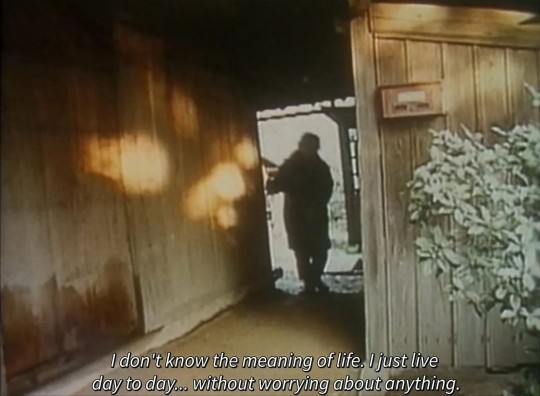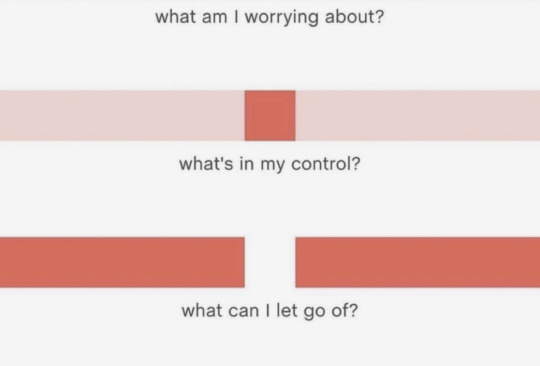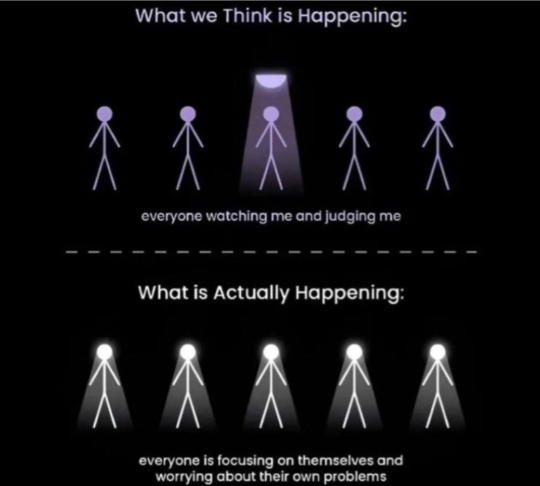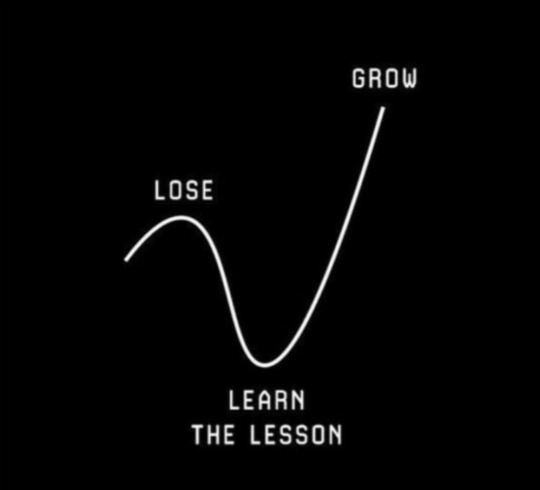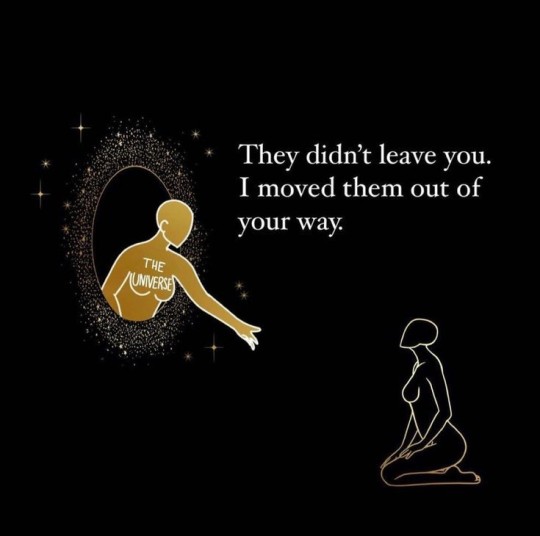Text
They Were Always Allowed: A Personal Theory of TV Girl’s Hit "Not Allowed"
Hello internet, it's grim.
I just wanted to quickly thank everyone that went a read my last long post! My last post is probably the most popular piece of literary and analytical content that I have ever written, so I am happy that my writing is being seen by those in the community. As I start to write more over this year, I want a place to share my content beyond Tumblr, so if you're interested, I have opened up an Instagram account focused on advertising my blog here.
For this post, I plan to talk about another major interest of mine: Music and lyrical analysis. It's not something that I am totally great at yet, so please bare with me. Thank you.
Who Really Cares: The Inescapable Album of 2023
One of my favorite hobbies over the past few years has been rating albums and songs that I come across. It was something that I had picked up on when I was in 8th grade, and it helped me handle my emotions and stresses during a time of abuse. Now, as a college student, I rate albums as a past time, and I have come to enjoy it. In fact, a few of my college essays have revolved around music artists and the impact their music had on the world and myself.

Here are a few of the albums that I have rated over the past 5-6 months on AOTY.
Now for most albums, the rating process is fairly boring. I go through an album, pick out what songs I enjoyed and hated, and give my rating. Nothing out of the ordinary. But every once in a while, an album comes around that, for whatever reason, people on the internet flip the hell out over (regardless of whether the album is "good" or "bad").
90% of the time, I tend to wipe these albums off my list of albums to rate, typically because these albums tend to be overrated in some way, shape, or form. But in 2023, I could simply not get away from TV Girl's 2016 album, Who Really Cares. Despite the album turning 8 years old as of this year, I have still seen this album appear numerous times on YouTube shorts, Instagram stories, Instagram Reels, Twitter memes, and Spotify playlists. In fact, the reason why I even know of TV Girl is due to the fact that an ex of mine dedicated their hit song "Not Allowed" to me after our breakup. So I gave the album a 78/100 and moved on with my life (and my AOTY rating can be found here).


Fun fact: The source image for Who Really Cares originates from George M. Hester's The Classic Nude (Reddit). Arguably one of my favorite album covers of all time.
Most of the songs on the album aren't bad, and the unique sampling is extremely entrancing, but the album sounds the same throughout, with most songs lacking individual uniqueness. There were many instances in which I would attempt to write a short take on individual songs just to realize that I would be pointing out the exact same lyrics between two songs. For instance, "Not Allowed" and "For You" both use the "never intend to do what you say at all" line, which I found funny. While this could've been TV Girl using the line as a thematic or symbolic purpose throughout their album, it just felt lazy, especially since this doesn't occur in other albums that they've produced. Albums such as Summer's Over and Lonely Women were much better in terms of order, structure, and thematic principles than Who Really Cares, and neither of them have the repetition issue either.
"Not Allowed" and Misogyny : The Anthem of "Male Manipulators"
After rating and criticizing Who Really Cares back in mid-December, I didn't think too much else about it. Most of the traction around TV Girl started to die down, I started hearing their Tiktok-styled songs less, and many people started to drop the album as social media algorithms led the masses to other albums. Personally, I just liked a couple of songs and downloaded the album cover, and moved on.
A few weeks go by since I listened to the album and I decide that I want to change my profile picture on Steam. Not thinking anything of it, I changed my profile picture from Fleetwood Mac's Then Play On to a close-up of the man on the cover for Who Really Cares. Nothing too crazy, but this does go somewhere.
I hop into a good ol' game of CS2 with a few of my friends. We rage and get our asses kicked as per usual, but we eventually get paired up with another team that is more on our playing level. At the beginning of the game, everything was going well. Both teams were at about 3 or 4 points, so there was a chance of us winning. However, during the middle of the game, one of the teammates on the other team makes a comment about my profile picture being TV Girl, and claims that I was a listener of "male manipulator music." What?
I was so confused by what their teammate was talking about. What the hell is a "male manipulator?" Is it a man that manipulates people? Who is he manipulating? What does he get out of manipulating the subject in question? Or is it a woman that manipulates naive men? What does she get out of it? These questions wrapped around my brain that I had to team kill like three of my teammates to get off of CS2 to go do some research about this term.
Now from what I researched, there does not seem to be an official definition for the term "Male manipulator music." So I did what every other being on the internet does: I looked it up on Urban Dictionary.

Worst discovery ever. I listen to The Smiths, Deftones, and TV Girl so this is like my own personal 9/11.
In short, "male manipulator music" is a subgenre of artists and bands that have a fanbase of men that tend to manipulate women. Their unique yet depressing taste in music is sometimes used to reel in emotionally damaged and/or naive women into harmful relationship dynamics, hurting both the artist and their fanbase. It would be fair to argue that these men are almost like parasites to fanbases rather than part of a fanbase.
But this led me down a much larger rabbit hole regarding TV Girl that I had no run into back in December. Why is TV Girl thrown into this category of "male manipulator music?" So I went digging, and boy did I find some stuff:

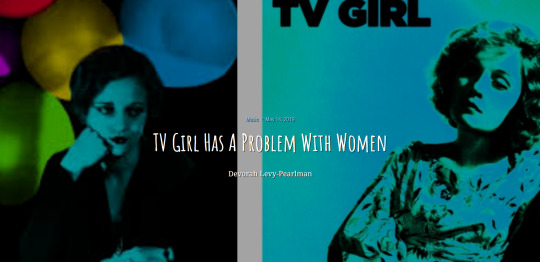

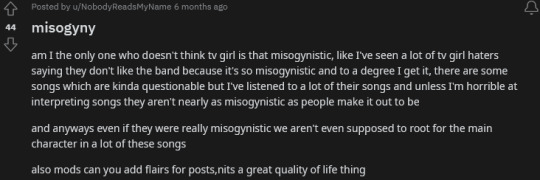

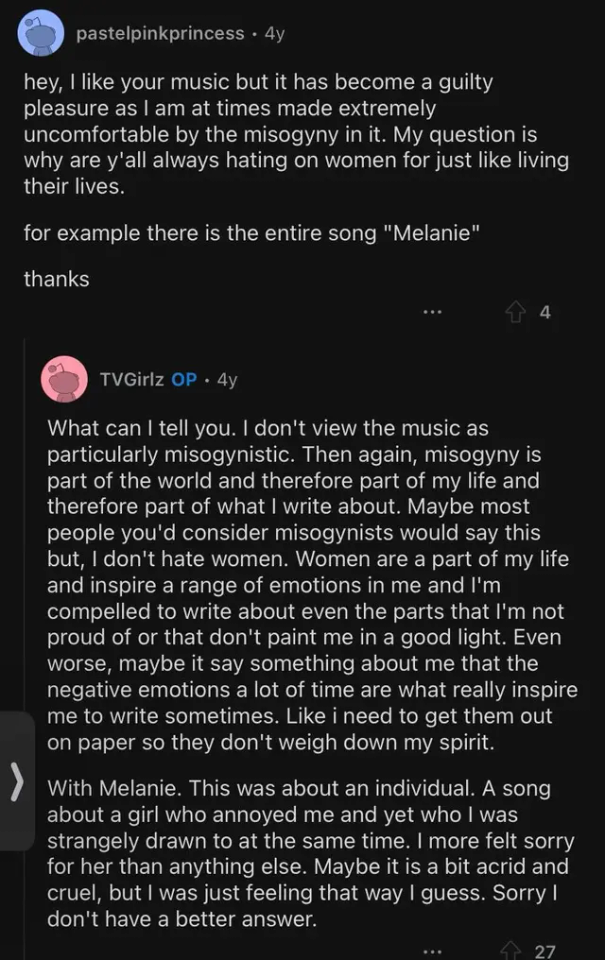
(btw all the images are linked to my sources if you are interested in reading further)
Let's just say there are accusations galore about TV Girl and being misogynistic. From the lyric writing to the sampling sources, numerous cases and analyses have been written on TV Girl being misogynistic. Now, most of these are regarding different songs from TV Girl, so most of these might not apply to "Not Allowed," but then I kept running into more posts claiming that the entire point of TV Girl was to simply be misogynistic. That their aesthetic, mindset, and point of view was meant to put down women in a negative light as if men are superior, non-flawed beings. And the more I dug, the larger the accusations became.
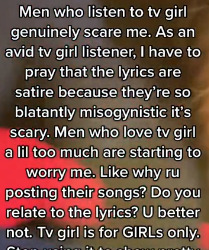
Pack it up boys, we aren't allowed to listen to TV Girl anymore...
I was completely shocked. A song that I had picked up from an ex that helped me get through a rough spot in my life was now the target of a much larger campaign of women online claiming such music was meant to put them down? I wouldn't even care too much about the whole phenomenon, but it gets brought ALL THE TIME. And TV Girl has been making music for over 10 years.
With this rabbit hole successfully uncovered, I decided to write down the overall points that many critics point out regarding TV Girl's music.
TV Girl is misogynistic because:
Lyrics describe women in a humiliating and/or degrading manner
Songs are associated with or attract the previously mentioned "male manipulators"
TV Girl sympathizes with the male psyche post-heartbreak
Now that I had a list of reasons why people argue that TV Girl's discography is misogynistic, I am going to try my best to not only debunk these, but give my own personal interpretation of "Not Allowed," which I believe has been heavily misinterpreted and improperly characterized as an anthem for possessive, manipulative men.
Whack-A-Theory and Debunking Misogyny Claims
But before we can talk about the reasons why TV Girl's "Not Allowed" is misogynistic, we must first figure out just what "Not Allowed" is about.
According to the general consensus (aka the Internet), "Not Allowed" is a song about:
The feelings of a man who is rejected by a woman who is in love with someone else.
A man who fears to speak his thoughts on a love interest due to a fear of being socially criticized for speaking about sex.
Slut-shaming a woman who has rejected the singer.
Now, these are all very different theories, and even though they might sound similar since they revolve around a relationship dynamic filled with blurred lines, the implications of these theories vastly differ.
If any of these were MOST LIKELY to be true, it would be theory one. Let me explain:
First of all, "Not Allowed" DOES talk about sex. I'm not entirely sure why the second theory is thrown around so often in the TV Girl community, but it simply does not make any sense regarding the song. Furthermore, any basic research into the intro sample of "Not Allowed" would lead you to the feminist rap group Yeastie Girlz, which were known for their raunchy yet pro-women stance on sexual openness. In fact, the "song" that the sample is from is called "You Suck," which is a recording of the Yeastie Girlz talking about female oral sex in their album titled, Ovary Action:
youtube
For TV Girl to use such a raunchy sample in a song that is NOT supposed to talk about sex seems a bit ironic. While it could be argued that these underlying variables are meant to poke fun at the stigma of sexual talk, it wouldn't make sense for TV Girl to use those same elements as a way to insult the girl's partner either.
Take for example:
"But now he's playing with your head
But did he ever make you cum?"
Personally it doesn't make sense to me why TV Girl would take a jab at the sex stigma by using sexual acts to describe his bitter attitude. Furthermore, TV Girl pokes at the girl's sexual partner (or partners), singing:
"But how quickly they [the sonnets] turn sour
So be careful who you screw."
Again, TV Girl's excessive use of raunchy samples and the jabs that the singer takes at sex itself doesn't add up to this theory. No one here is benefits from the negative usage of sex in the song, making this theory seem false.
While the second theory seems like complete bogus, the third theory could hold some weight. However, I think that there is more to this theory than what is presented online. While I will argue that the singer is shaming sexual actions within the song, I would say that the singer is taking more jabs at himself and the girl's current partner rather than the girl herself. Going back to the "messing with your head" lyric, TV Girl doesn't seem to take a jab at the girl having sexual intercourse with her current partner, but they seem to take a jab at the partner and how bad they might be doing at satisfying the girl's sexual needs. While one could argue that a jab at the girl's partner throws her in as collateral, the singer makes it very clear that his feelings towards himself are not great either, stating:
"I guess it's different 'cause you love him
But I've got an interactive
Sick and twisted imagination
And that's gotta count for something"
While the singer does not degrade himself to the same level that the girl's partner is subjected to, it is important to note that the girl is the one person in this entire song that is degraded THE LEAST. Not only does this disprove theory three, but it also disproves theories one and three of why "Not Allowed" is misogynistic. If "Not Allowed" was meant to take jabs at women, it would focus way more on the girl's actions rather than the singer and the girl's partner. Furthermore, the second theory on why TV Girl is misogynistic is just a lazy attempt to play the guilty by association fallacy. The only reason I would defend this argument was if "Not Allowed" was truly ripping on the girl the entire time throughout this song, which does not happen. Also, why would TV Girl use Yeastie Girlz as a sample if they wanted to push an anti-woman anthem? None of the reasons posted on TikTok make sense, and the fact that people pushed these theories regarding TV Girl's "Not Allowed" seems silly and lazy.
We Were Once Allowed, But TikTok Thinks We're Strangers
Now we are down to just one theory. I purposely held off the first theory because my theory and the first theory are pretty similar. While I do believe that the song revolves around the feelings of a man who is rejected by a woman who is in love with someone else, I believe we are hearing the perspective of a jealous ex rather than a stranger.
Let me explain:
When I first heard this song, it was after I had broken up with my ex. I'll spare you the details, but I've always seen this song as an ex that felt like he was pushed out of the way for another guy that was waiting for the girl to leave.
"Now you suck
We wanna talk about sex but we're not allowed
Well, you may not like it but you better learn how 'cause it's your turn now
You're wasting your tongue with lame excuses and lies"
This part is the singer talking about the girl, saying that she sucks. He goes onto say that they wanna talk about the sexual aspects of their relationship but they are no longer allowed to. I would argue that the singer is making the assumption that his ex is truly not over him and just hopped into a relationship for a rebound. The singer says it's the girl's turn now to hear what he has to say and that she should shut up and listen to what's in store. It could be implied that she has also gone around and spread a false narrative against the singer.
"So how should I begin this?
I guess it started when you were with him.
And how he never even took you out to dance
But did he fuck with any rhythm?"
Here we see that the singer is collecting his thoughts on when he was first made uncomfortable with the girl's new partner. He explains that the girl's partner never took her out to dance, implying that he might've during their relationship. The "fuck with any rhythm" could be taken as either him liking any music or rhythmic sexual intercourse.
"But now he's playing with your head
But did he ever make you cum?
Did he ever make you cry?"
Moving on from the dance, the singer now leaves us with a dilemma. He claims that the girl's partner is playing with her head, which can be seen as the singer altering the truth to make the girl seem dumb, or he realizes that the girl is being taken advantage of for her partner's own sexual gratification. Personally, I'm choosing the latter. The singer then asks if her partner makes her cum or cry. Since this is in the past tense, it could be argued that this fling soon dies out or this is the current partner asking if the singer ever made the girl cum or cry, and the singer is just repeating the thoughts of the current partner.
"Do the wires in your mind get sewn together
Rubbed and severed by the heat
You don't know how long I could stare into your picture
And wish that it was me"
The singer now asks if there is a personal bond built between the girl and her partner. Based on the previous assumptions, we could argue "Yes" or "No." I would argue "yes" because the next line shows that the girl has taken pictures with the other person in question, making the singer wish that it was him. Again, this could also be seen as him feeling as if he is incapable of controlling ex or he's just jealous that she's with someone else after all that she's supposedly done.
"I guess it's different 'cause you love him
But I've got an interactive
Sick and twisted imagination
And that's gotta count for something"
Based on this, I feel like the ex might've complained about the singer's sexual habits. It might be implied here that the ex was disgusted by the singer's sexual interest towards her, but now it's different because it's someone else. The singer then gives himself the positive, claiming that his graphic imagination must be worth something.
Skipping the chorus becuase it's the same as the intro and I don't feel like repeating myself
"I dreamt I was standing in your doorstep
Licking sweat off of your forehead
With your finger in my mouth
And the sound when leather jackets hit the ground"
This could be the singer reminiscing on a past scenario in which he and the girl in question are being sensual. Nothing more to analyze.
"You should hear when you're not around
When it's just us horny poets
Who can't wait to write it down
And swear we were only being honest."
I believe this excerpt is the singer rubbing the past into the face of the girl's partner. Almost like a "yeah we used to have sex too y'know" moment. It could also be the singer implying that him and his ex have made small talk since they've broken up, attempting to come to closure. Nonetheless, it's clear that this was aimed at the girl's partner rather than the girl.
"Do you like these little sonnets
'Cause I wrote them just for you
But how quickly they turn sour
So be careful who you screw
And never call.
And I'm starting to suspect
You don't intend to do anything
you say at all."
After taking his shot at the girl's partner, the singer seems to take aim at the girl. This time, he's offering a set of sonnets he's written about her, but they all have a bad ending. He claims that the sonnets are written this way because she had sex with him and then (possibly) ghosted him afterwards. He then finishes up the excerpt by assuming that his ex was a liar. This could be seen as the singer uncovering an abusive relationship between him and his ex.
"All by yourself, sittin' alone
I hope we're still friends, yeah,
I hope you don't mind."
This is the part that led me to making this entire post. How could the singer and the girl "still be friends" if there was nothing else to begin with? You can't be friends with someone you never knew. This stupid verse led me to travel down a whole rabbit hole and a half just to give my own interpretation of the song, and I have no regrets. The singer is simply mocking the girl breaking up with the singer, claiming that they could still be friends and that she hope he doesn't mind, which is a common tactic that abusers might use after a relationship to hold some sort of control over their victim. This could be seen as an innocent ending to a falling out, or the ex looking for an avenue to hold onto the singer while he struggles with his own thoughts.
Conclusion
Regardless of whatever theory I or anyone on the internet come up with, I believe this song acts as a great litmus test as one's attitudes towards relationships. When I was scrolling through theories and the misogyny rabbit hole, I noticed that many people who wrote about "Not Allowed" focused on inputting their own experiences into the song, writing their theory as if the song was about their relationship. I would even argue that I did the same, and that's completely okay. I made this with the intent of simply debunking what has already been said about the song. While I think that anyone can have an opinion on what this song is supposed to represent, I didn't think any theory prior to mine was "the" meaning (as in what people should take the song as at face value). To put simply, I do not think that this song was about a male manipulator waiting to prey on his next victim, but the girl in question doesn't love him. If it was, then it wouldn't fit into Who Really Cares at all, for the album is about Brad's (the lead singer) troubled relationships with women. I think that's what people ran to because a majority of TV Girl's fanbase is women who have had shitty relationships, regardless of whether it was their fault or not. This has then led to TV Girl's reputation being about male manipulators because all the women in their fanbase simultaneously fear abusive men (and rightfully so). TV Girl simply reinforces that it could be either side's fault depending on how you look at both sides' cruel and immature behavior towards the fallout. I also found inspiration for this song analysis from NEOPUNK (it's a good listen check it out):
youtube
If you've read through the entirety of this damn blog post without knowing about the song I've been rambling about, give it a listen. It's pretty good:
And with that, I'm tired. Good night.
~grimaider.
#who really cares#tv girl#male manipulator#music rant#music#pop#pop music#popular#trend#media commentary#media analysis#media criticism#media#social media#indie#indie music#commentary#my commentary#debate#argument#discussion#january 2024#grimaider#incel#incelcore#incel behavior#theory#theories#speculation#analysis
4 notes
·
View notes
Text
It’s okay if you feel like you “got over” your trauma quickly, it doesn’t mean you weren’t really traumatized. It also doesn’t necessarily mean you’re actually over it. You may later realize the trauma still greatly affects you in a way you didn’t realize. Or it may get “better” but later “worse.” There is no timeline for healing, and no one has a right to judge you for whatever path your healing journey takes.
213 notes
·
View notes
Text
Lets create a house where yelling means we’re having fun. When you hear a door slam you know it was accidentally pulled with too much strength, not slammed out of anger. When there is silence, it is Contentment, not another passive aggressive fight. The dog is no longer barking to protect, he simply just wants the cats to play with him. Let’s create a safe, warm environment that makes you feel like you can breathe, not hold your breath. Let’s stomp on the eggshells we use to tip toe on. Together we will make this house into a home. And welcome all with open arms into this kind and loving space.
27K notes
·
View notes
Text
You are under no obligation to heal in a “pretty” way. Or a way that society expects. Healing is messy and chaotic. And it’s okay if you show that sometimes.
549 notes
·
View notes
Text
They Were Always Allowed: A Personal Theory of TV Girl’s Hit "Not Allowed"
Hello internet, it's grim.
I just wanted to quickly thank everyone that went a read my last long post! My last post is probably the most popular piece of literary and analytical content that I have ever written, so I am happy that my writing is being seen by those in the community. As I start to write more over this year, I want a place to share my content beyond Tumblr, so if you're interested, I have opened up an Instagram account focused on advertising my blog here.
For this post, I plan to talk about another major interest of mine: Music and lyrical analysis. It's not something that I am totally great at yet, so please bare with me. Thank you.
Who Really Cares: The Inescapable Album of 2023
One of my favorite hobbies over the past few years has been rating albums and songs that I come across. It was something that I had picked up on when I was in 8th grade, and it helped me handle my emotions and stresses during a time of abuse. Now, as a college student, I rate albums as a past time, and I have come to enjoy it. In fact, a few of my college essays have revolved around music artists and the impact their music had on the world and myself.

Here are a few of the albums that I have rated over the past 5-6 months on AOTY.
Now for most albums, the rating process is fairly boring. I go through an album, pick out what songs I enjoyed and hated, and give my rating. Nothing out of the ordinary. But every once in a while, an album comes around that, for whatever reason, people on the internet flip the hell out over (regardless of whether the album is "good" or "bad").
90% of the time, I tend to wipe these albums off my list of albums to rate, typically because these albums tend to be overrated in some way, shape, or form. But in 2023, I could simply not get away from TV Girl's 2016 album, Who Really Cares. Despite the album turning 8 years old as of this year, I have still seen this album appear numerous times on YouTube shorts, Instagram stories, Instagram Reels, Twitter memes, and Spotify playlists. In fact, the reason why I even know of TV Girl is due to the fact that an ex of mine dedicated their hit song "Not Allowed" to me after our breakup. So I gave the album a 78/100 and moved on with my life (and my AOTY rating can be found here).


Fun fact: The source image for Who Really Cares originates from George M. Hester's The Classic Nude (Reddit). Arguably one of my favorite album covers of all time.
Most of the songs on the album aren't bad, and the unique sampling is extremely entrancing, but the album sounds the same throughout, with most songs lacking individual uniqueness. There were many instances in which I would attempt to write a short take on individual songs just to realize that I would be pointing out the exact same lyrics between two songs. For instance, "Not Allowed" and "For You" both use the "never intend to do what you say at all" line, which I found funny. While this could've been TV Girl using the line as a thematic or symbolic purpose throughout their album, it just felt lazy, especially since this doesn't occur in other albums that they've produced. Albums such as Summer's Over and Lonely Women were much better in terms of order, structure, and thematic principles than Who Really Cares, and neither of them have the repetition issue either.
"Not Allowed" and Misogyny : The Anthem of "Male Manipulators"
After rating and criticizing Who Really Cares back in mid-December, I didn't think too much else about it. Most of the traction around TV Girl started to die down, I started hearing their Tiktok-styled songs less, and many people started to drop the album as social media algorithms led the masses to other albums. Personally, I just liked a couple of songs and downloaded the album cover, and moved on.
A few weeks go by since I listened to the album and I decide that I want to change my profile picture on Steam. Not thinking anything of it, I changed my profile picture from Fleetwood Mac's Then Play On to a close-up of the man on the cover for Who Really Cares. Nothing too crazy, but this does go somewhere.
I hop into a good ol' game of CS2 with a few of my friends. We rage and get our asses kicked as per usual, but we eventually get paired up with another team that is more on our playing level. At the beginning of the game, everything was going well. Both teams were at about 3 or 4 points, so there was a chance of us winning. However, during the middle of the game, one of the teammates on the other team makes a comment about my profile picture being TV Girl, and claims that I was a listener of "male manipulator music." What?
I was so confused by what their teammate was talking about. What the hell is a "male manipulator?" Is it a man that manipulates people? Who is he manipulating? What does he get out of manipulating the subject in question? Or is it a woman that manipulates naive men? What does she get out of it? These questions wrapped around my brain that I had to team kill like three of my teammates to get off of CS2 to go do some research about this term.
Now from what I researched, there does not seem to be an official definition for the term "Male manipulator music." So I did what every other being on the internet does: I looked it up on Urban Dictionary.

Worst discovery ever. I listen to The Smiths, Deftones, and TV Girl so this is like my own personal 9/11.
In short, "male manipulator music" is a subgenre of artists and bands that have a fanbase of men that tend to manipulate women. Their unique yet depressing taste in music is sometimes used to reel in emotionally damaged and/or naive women into harmful relationship dynamics, hurting both the artist and their fanbase. It would be fair to argue that these men are almost like parasites to fanbases rather than part of a fanbase.
But this led me down a much larger rabbit hole regarding TV Girl that I had no run into back in December. Why is TV Girl thrown into this category of "male manipulator music?" So I went digging, and boy did I find some stuff:






(btw all the images are linked to my sources if you are interested in reading further)
Let's just say there are accusations galore about TV Girl and being misogynistic. From the lyric writing to the sampling sources, numerous cases and analyses have been written on TV Girl being misogynistic. Now, most of these are regarding different songs from TV Girl, so most of these might not apply to "Not Allowed," but then I kept running into more posts claiming that the entire point of TV Girl was to simply be misogynistic. That their aesthetic, mindset, and point of view was meant to put down women in a negative light as if men are superior, non-flawed beings. And the more I dug, the larger the accusations became.

Pack it up boys, we aren't allowed to listen to TV Girl anymore...
I was completely shocked. A song that I had picked up from an ex that helped me get through a rough spot in my life was now the target of a much larger campaign of women online claiming such music was meant to put them down? I wouldn't even care too much about the whole phenomenon, but it gets brought ALL THE TIME. And TV Girl has been making music for over 10 years.
With this rabbit hole successfully uncovered, I decided to write down the overall points that many critics point out regarding TV Girl's music.
TV Girl is misogynistic because:
Lyrics describe women in a humiliating and/or degrading manner
Songs are associated with or attract the previously mentioned "male manipulators"
TV Girl sympathizes with the male psyche post-heartbreak
Now that I had a list of reasons why people argue that TV Girl's discography is misogynistic, I am going to try my best to not only debunk these, but give my own personal interpretation of "Not Allowed," which I believe has been heavily misinterpreted and improperly characterized as an anthem for possessive, manipulative men.
Whack-A-Theory and Debunking Misogyny Claims
But before we can talk about the reasons why TV Girl's "Not Allowed" is misogynistic, we must first figure out just what "Not Allowed" is about.
According to the general consensus (aka the Internet), "Not Allowed" is a song about:
The feelings of a man who is rejected by a woman who is in love with someone else.
A man who fears to speak his thoughts on a love interest due to a fear of being socially criticized for speaking about sex.
Slut-shaming a woman who has rejected the singer.
Now, these are all very different theories, and even though they might sound similar since they revolve around a relationship dynamic filled with blurred lines, the implications of these theories vastly differ.
If any of these were MOST LIKELY to be true, it would be theory one. Let me explain:
First of all, "Not Allowed" DOES talk about sex. I'm not entirely sure why the second theory is thrown around so often in the TV Girl community, but it simply does not make any sense regarding the song. Furthermore, any basic research into the intro sample of "Not Allowed" would lead you to the feminist rap group Yeastie Girlz, which were known for their raunchy yet pro-women stance on sexual openness. In fact, the "song" that the sample is from is called "You Suck," which is a recording of the Yeastie Girlz talking about female oral sex in their album titled, Ovary Action:
youtube
For TV Girl to use such a raunchy sample in a song that is NOT supposed to talk about sex seems a bit ironic. While it could be argued that these underlying variables are meant to poke fun at the stigma of sexual talk, it wouldn't make sense for TV Girl to use those same elements as a way to insult the girl's partner either.
Take for example:
"But now he's playing with your head
But did he ever make you cum?"
Personally it doesn't make sense to me why TV Girl would take a jab at the sex stigma by using sexual acts to describe his bitter attitude. Furthermore, TV Girl pokes at the girl's sexual partner (or partners), singing:
"But how quickly they [the sonnets] turn sour
So be careful who you screw."
Again, TV Girl's excessive use of raunchy samples and the jabs that the singer takes at sex itself doesn't add up to this theory. No one here is benefits from the negative usage of sex in the song, making this theory seem false.
While the second theory seems like complete bogus, the third theory could hold some weight. However, I think that there is more to this theory than what is presented online. While I will argue that the singer is shaming sexual actions within the song, I would say that the singer is taking more jabs at himself and the girl's current partner rather than the girl herself. Going back to the "messing with your head" lyric, TV Girl doesn't seem to take a jab at the girl having sexual intercourse with her current partner, but they seem to take a jab at the partner and how bad they might be doing at satisfying the girl's sexual needs. While one could argue that a jab at the girl's partner throws her in as collateral, the singer makes it very clear that his feelings towards himself are not great either, stating:
"I guess it's different 'cause you love him
But I've got an interactive
Sick and twisted imagination
And that's gotta count for something"
While the singer does not degrade himself to the same level that the girl's partner is subjected to, it is important to note that the girl is the one person in this entire song that is degraded THE LEAST. Not only does this disprove theory three, but it also disproves theories one and three of why "Not Allowed" is misogynistic. If "Not Allowed" was meant to take jabs at women, it would focus way more on the girl's actions rather than the singer and the girl's partner. Furthermore, the second theory on why TV Girl is misogynistic is just a lazy attempt to play the guilty by association fallacy. The only reason I would defend this argument was if "Not Allowed" was truly ripping on the girl the entire time throughout this song, which does not happen. Also, why would TV Girl use Yeastie Girlz as a sample if they wanted to push an anti-woman anthem? None of the reasons posted on TikTok make sense, and the fact that people pushed these theories regarding TV Girl's "Not Allowed" seems silly and lazy.
We Were Once Allowed, But TikTok Thinks We're Strangers
Now we are down to just one theory. I purposely held off the first theory because my theory and the first theory are pretty similar. While I do believe that the song revolves around the feelings of a man who is rejected by a woman who is in love with someone else, I believe we are hearing the perspective of a jealous ex rather than a stranger.
Let me explain:
When I first heard this song, it was after I had broken up with my ex. I'll spare you the details, but I've always seen this song as an ex that felt like he was pushed out of the way for another guy that was waiting for the girl to leave.
"Now you suck
We wanna talk about sex but we're not allowed
Well, you may not like it but you better learn how 'cause it's your turn now
You're wasting your tongue with lame excuses and lies"
This part is the singer talking about the girl, saying that she sucks. He goes onto say that they wanna talk about the sexual aspects of their relationship but they are no longer allowed to. I would argue that the singer is making the assumption that his ex is truly not over him and just hopped into a relationship for a rebound. The singer says it's the girl's turn now to hear what he has to say and that she should shut up and listen to what's in store. It could be implied that she has also gone around and spread a false narrative against the singer.
"So how should I begin this?
I guess it started when you were with him.
And how he never even took you out to dance
But did he fuck with any rhythm?"
Here we see that the singer is collecting his thoughts on when he was first made uncomfortable with the girl's new partner. He explains that the girl's partner never took her out to dance, implying that he might've during their relationship. The "fuck with any rhythm" could be taken as either him liking any music or rhythmic sexual intercourse.
"But now he's playing with your head
But did he ever make you cum?
Did he ever make you cry?"
Moving on from the dance, the singer now leaves us with a dilemma. He claims that the girl's partner is playing with her head, which can be seen as the singer altering the truth to make the girl seem dumb, or he realizes that the girl is being taken advantage of for her partner's own sexual gratification. Personally, I'm choosing the latter. The singer then asks if her partner makes her cum or cry. Since this is in the past tense, it could be argued that this fling soon dies out or this is the current partner asking if the singer ever made the girl cum or cry, and the singer is just repeating the thoughts of the current partner.
"Do the wires in your mind get sewn together
Rubbed and severed by the heat
You don't know how long I could stare into your picture
And wish that it was me"
The singer now asks if there is a personal bond built between the girl and her partner. Based on the previous assumptions, we could argue "Yes" or "No." I would argue "yes" because the next line shows that the girl has taken pictures with the other person in question, making the singer wish that it was him. Again, this could also be seen as him feeling as if he is incapable of controlling ex or he's just jealous that she's with someone else after all that she's supposedly done.
"I guess it's different 'cause you love him
But I've got an interactive
Sick and twisted imagination
And that's gotta count for something"
Based on this, I feel like the ex might've complained about the singer's sexual habits. It might be implied here that the ex was disgusted by the singer's sexual interest towards her, but now it's different because it's someone else. The singer then gives himself the positive, claiming that his graphic imagination must be worth something.
Skipping the chorus becuase it's the same as the intro and I don't feel like repeating myself
"I dreamt I was standing in your doorstep
Licking sweat off of your forehead
With your finger in my mouth
And the sound when leather jackets hit the ground"
This could be the singer reminiscing on a past scenario in which he and the girl in question are being sensual. Nothing more to analyze.
"You should hear when you're not around
When it's just us horny poets
Who can't wait to write it down
And swear we were only being honest."
I believe this excerpt is the singer rubbing the past into the face of the girl's partner. Almost like a "yeah we used to have sex too y'know" moment. It could also be the singer implying that him and his ex have made small talk since they've broken up, attempting to come to closure. Nonetheless, it's clear that this was aimed at the girl's partner rather than the girl.
"Do you like these little sonnets
'Cause I wrote them just for you
But how quickly they turn sour
So be careful who you screw
And never call.
And I'm starting to suspect
You don't intend to do anything
you say at all."
After taking his shot at the girl's partner, the singer seems to take aim at the girl. This time, he's offering a set of sonnets he's written about her, but they all have a bad ending. He claims that the sonnets are written this way because she had sex with him and then (possibly) ghosted him afterwards. He then finishes up the excerpt by assuming that his ex was a liar. This could be seen as the singer uncovering an abusive relationship between him and his ex.
"All by yourself, sittin' alone
I hope we're still friends, yeah,
I hope you don't mind."
This is the part that led me to making this entire post. How could the singer and the girl "still be friends" if there was nothing else to begin with? You can't be friends with someone you never knew. This stupid verse led me to travel down a whole rabbit hole and a half just to give my own interpretation of the song, and I have no regrets. The singer is simply mocking the girl breaking up with the singer, claiming that they could still be friends and that she hope he doesn't mind, which is a common tactic that abusers might use after a relationship to hold some sort of control over their victim. This could be seen as an innocent ending to a falling out, or the ex looking for an avenue to hold onto the singer while he struggles with his own thoughts.
Conclusion
Regardless of whatever theory I or anyone on the internet come up with, I believe this song acts as a great litmus test as one's attitudes towards relationships. When I was scrolling through theories and the misogyny rabbit hole, I noticed that many people who wrote about "Not Allowed" focused on inputting their own experiences into the song, writing their theory as if the song was about their relationship. I would even argue that I did the same, and that's completely okay. I made this with the intent of simply debunking what has already been said about the song. While I think that anyone can have an opinion on what this song is supposed to represent, I didn't think any theory prior to mine was "the" meaning (as in what people should take the song as at face value). To put simply, I do not think that this song was about a male manipulator waiting to prey on his next victim, but the girl in question doesn't love him. If it was, then it wouldn't fit into Who Really Cares at all, for the album is about Brad's (the lead singer) troubled relationships with women. I think that's what people ran to because a majority of TV Girl's fanbase is women who have had shitty relationships, regardless of whether it was their fault or not. This has then led to TV Girl's reputation being about male manipulators because all the women in their fanbase simultaneously fear abusive men (and rightfully so). TV Girl simply reinforces that it could be either side's fault depending on how you look at both sides' cruel and immature behavior towards the fallout. I also found inspiration for this song analysis from NEOPUNK (it's a good listen check it out):
youtube
If you've read through the entirety of this damn blog post without knowing about the song I've been rambling about, give it a listen. It's pretty good:
And with that, I'm tired. Good night.
~grimaider.
#who really cares#tv girl#male manipulator#music rant#music#pop#pop music#popular#trend#media commentary#media analysis#media criticism#media#social media#indie#indie music#commentary#my commentary#debate#argument#discussion#january 2024#grimaider#incel#incelcore#incel behavior#theory#theories#speculation#analysis
4 notes
·
View notes
Text
58K notes
·
View notes
Text
It’s okay if you don’t react to trauma the way you see portrayed in media. Society likes to push a “beautiful survivor” trope and it is completely okay to not fit into that. It’s not a realistic expectation. Everyone is unique and heals and reacts differently. It’s okay if you are angry, hardened, or any number of things that society makes you think aren’t acceptable.
614 notes
·
View notes
Text
Making mistakes doesn’t mean you deserve abuse. Ever.
741 notes
·
View notes
Text
The Coffin of Elfen and Leyley: Incest and Questionable Consent in 2000s Media.
WARNING: This blog post mentions numerous sensitive subjects such as incest, questionable consent, murder, cannibalism, sexually explicit material, and real-life criminal cases. If any of the following is bothersome, I would highly suggest scrolling past this post. Thank you.
ANOTHER WARNING: This post contains spoilers for Elfen Lied and The Coffin of Andy and Leyley. If you wish to avoid spoilers, I would highly suggest clicking off this post and come back once you have finished both. Thank you.
Hello (again), it's grim.
I wanted to discuss an interesting phenomenon that I've taken note of over the past couple of years that seems to always cause internet controversy: The rise of taboo subjects found in modern media.
Now, I want to clarify that I hold very libertarian beliefs when it comes to media. If you can think it, it can be written, regardless of how inappropriate the content is. However, I also believe that there should be consequences to such writings depending on the substance.
The two topics I'll be talking about today are The Coffin of Andy and Leyley and Elfen Lied. These are both pieces of media that I have consumed in the past 2 years, and have noticed a trend between taboo subjects and how their respective authors and/or fanbases have used their taboo nature to repurpose characters and relationships for inappropriate media.
While I believe these pieces of media can be criticized in any manner due to their taboo nature, I would argue in defense of their conception since there is no exact promotion of the taboo nature represented throughout the mentioned medias. I believe this is important to state, for I solely disagree with the creation of media that promotes a taboo and/or illegal act rather than just the representation of such acts.
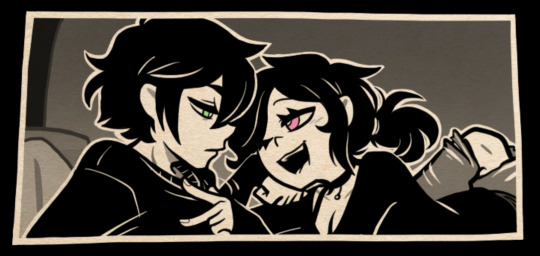
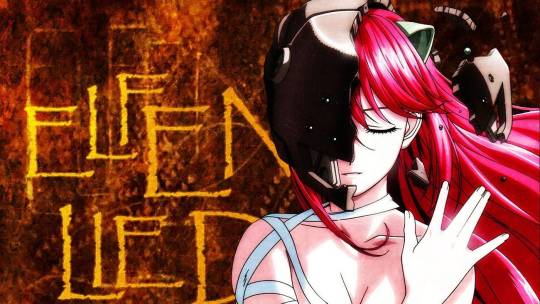
Images of The Coffin of Andy and Leyley (left) and Elfen Lied (right)
To make this analysis and opinionated piece easier to read, I will be going through my opinions and personal experiences with both of these medias separately. To do this, I will be separating taboo into two subsections:
Illegal Taboo
Questionable Taboo
While I would argue that there is probably some grey area between the two of these, I am simply dividing the taboos into two separate categories because my stance on illegal and questionable taboo slightly changes. Furthermore, the taboos in TCOAAL and Elfen Lied are very different. I believe it would be unfair to compare incest and questionable consent content. Both are taboo, both have been countlessly debated for and against, but incest has stable, concrete laws set against it (at least in the United States) while the other doesn't.
Let's get into the analysis.
Illegal Taboo (The Coffin of Andy and Leyley)
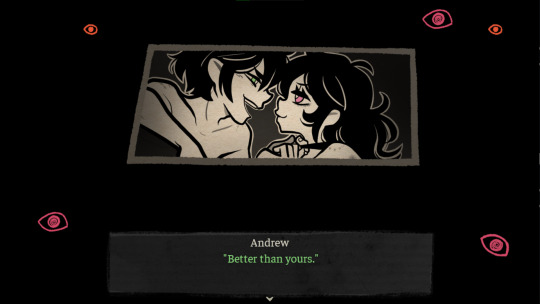
Screenshot from the love/incest route of The Coffin of Andy and Leyley
Oh boy, where do I start. I wasn't entirely sure what I was getting myself into when I first stumbled upon this game. I saw the art style of the game in a YouTube video where the uploader had referred to the siblings as "lovers," which gave me the impression that the main characters of the game were not blood relatives. By the time I had seen the controversy plastered all over Twitter and Reddit about the TCOAAL's "questionable" content, I had already bought the game, which put me in a tough dilemma: Do I immediately refund the game or do I give it a chance?
I bet you can guess which one I picked.
Me being the curious individual that I am, I decided to keep the game. I had a million thoughts rush through my mind about the decision I had just made. What if the game actually has illegal content? People must be exaggerating the situation. I'm sure that the incest claims are probably just false. If it does have a plot that revolves around such content, maybe its just a small tidbit of the game. No biggie. These thoughts did not stop, and I wasn't sure what to do next.
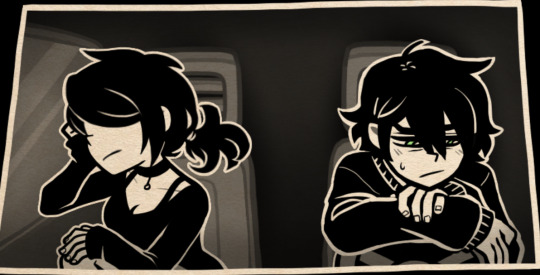
One of the only screenshots from Episode 2 of TCOAAL that isn't horrendous
For a month or so, I avoided the game like the plague. I held off on installing it, I avoided it on Twitter, Reddit, and Instagram as best as I could (for both spoilers and online biases), and I refused to talk about the game with anyone that I knew. I planned to play the game, but I wanted all the controversy to die off first so I could play it without too much backlash. Unfortunately in this world, outrage has become the people's first emotion to anything, so even if your reasoning for such an action is rational and fair, you might still be attacked for simply touching new media without an initial bias.
When I finally got around to playing the game, I was genuinely pleased. Episode 1 has nothing over-the-top, and the incest that people were talking about was yet to be seen. So I didn't think anything of it. I scrolled through my social media and just continued assuming that people were hating on TCOAAL simply for being a new trend.
Then Episode 2 came around.
I'm going to keep this short and sweet: There is incestuous acts and behaviors littered throughout the game, and people online were certainly right.
Below, I have a handful of screenshots that I took showcasing the romantic and sexual tension and acts between the two siblings. There's a bit of it.
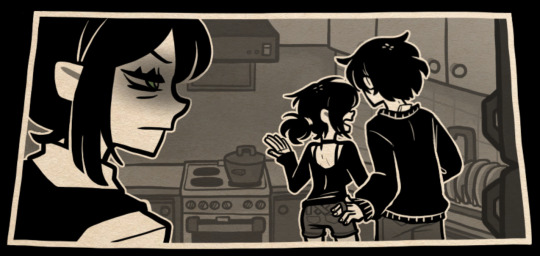
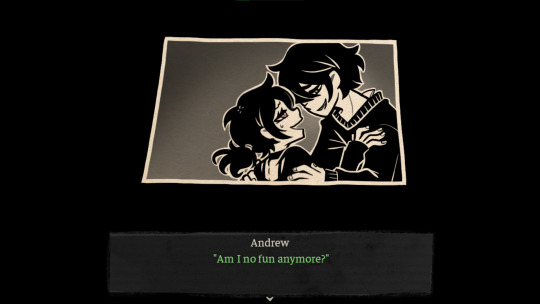
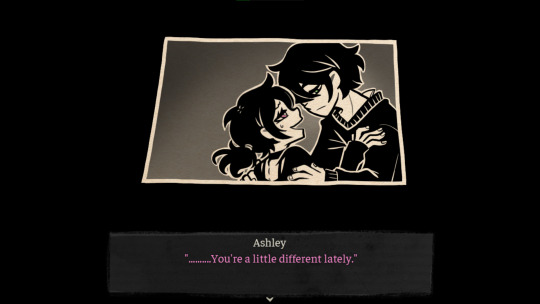
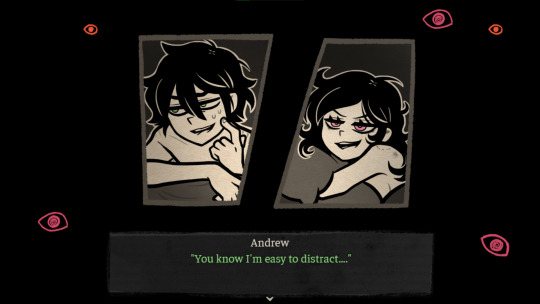
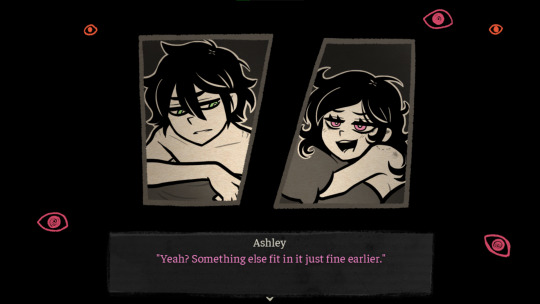

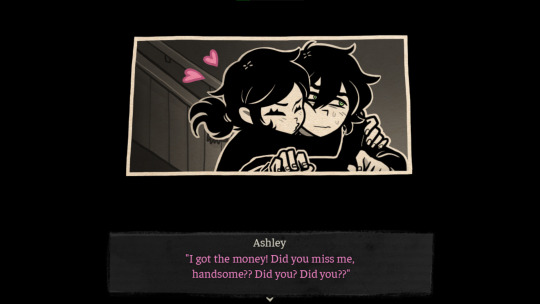
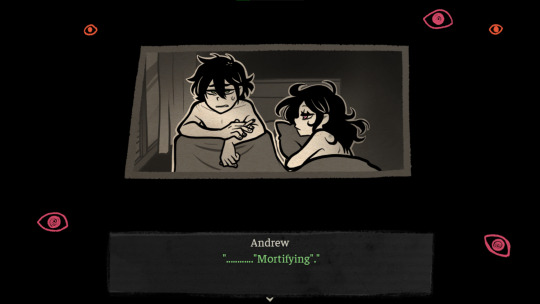
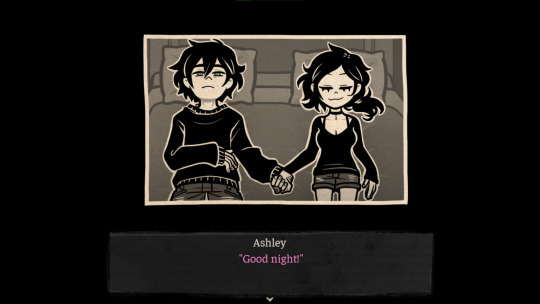
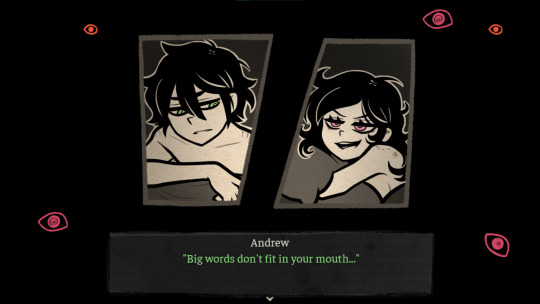
(I'm not kidding, all of these are in the game)
Now, I will give TCOAAL fans this, the vast majority (9 of the 10 images) of the incestuous content above is NOT easy to come across. There are very specific routes that you must past through in Episode 2 to come across these screenshots. So it's not as "obvious" as people online made it out to be. In fact, it took me roughly 3 hours of additional gameplay to reach all the different endings for Episode 2, so it certainly is time consuming.
For the sake of time and my sanity, I will NOT be showing how to reach these scenarios. I will only say that you will know if you stumble across the lover/incest route because the NARRATOR THEMSELF warns you NOT to continue down the route.
While I don't think that the incestuous undertones of the story should be the entire definition of the series, I can understand why people dislike it. What is so genius about giving Leyley a romantic and sexual interest in Andrew is that it does one simple thing that the creator wanted to hit home: It makes people uncomfortable. It simply does what every other piece of horror/thriller media tries to do, and it does it well. I don't see it as any more or less uncomfortable as the barbwire scene from Saw I, and the fact that the creator could pull that off just by making Leyley an incestuous, manipulative creep is stunning.
Furthermore, TCOAAL acts as an interesting question for psychology: Does social deprivation, abandonment, isolation, hopelessness, and manipulation play a role in one's moral compass? We see that Andrew's behavior towards Leyley dramatically changes throughout Episode 2 depending on whether you choose to trust and sympathize with Leyley. In addition to a change in behavior, we also see that (most notably the incest route) Andrew accepts his nickname "Andy" again, which he hates due to its connection with a murder that he committed with his sister in Episode 1 (not going into too much detail). It is also noted that Andrew's ex-girlfriend Julia had trouble with Leyley's dominating presence in Andrew's life, which would lead her to stop communicating with him. His degree of whether he cares or not changes based on his sympathy towards Leyley, highlighting how relationships in Andrew's life highly changes based on how much he lets Leyley abuse his existence.
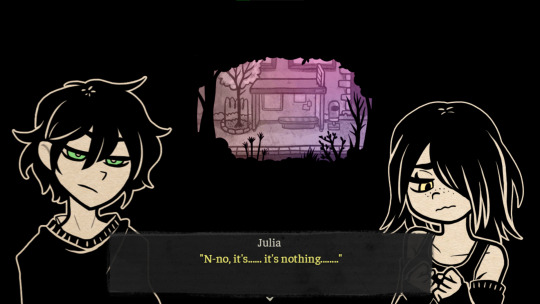
Backstory that showcases Andrew's love interest that abandons him in Episode 1
In short, TCOAAL has many more layers than the internet made it out to be, but the incestuous routes and behaviors between Andrew and Leyley can be seen as concerning. I'll come back to this shortly.
Questionable Taboo (Elfen Lied)

Famous cover art for Elfen Lied showcasing Lucy in the nude.
Now, I watched Elfen Lied in 2022, so I'm just putting it out here that it has been a while since I have watched the anime. Furthermore, I have not read the manga, so my observations are SOLELY off the anime adaptation of Elfen Lied.
Just like TCOAAL, I do NOT think that the story of Elfen Lied is overly terrible. While I do think that TCOAAL has a more sound story line, I do think that Elfen Lied did an okay job at showcasing the selfishness and cruelty of humanity. However, there has always been a part of the show that doesn't sit right with me and many other viewers, and that is Kouta's (the main male protagonist) relationships with Yuka and Lucy.
Throughout the entirety of the show, Kouta partakes in relationships that are considered extremely taboo, especially in the western world. For one, he marries and supposedly procreates with his cousin Yuka at the end of the anime and manga, which is gross and highly disturbing to me, and I am certainly not the only one who feels that way. Almost any search through r/elfenlied would show the outrage and confusion that many people hold towards such a decision. Below are just a couple of what can be found about Kouta and Yuka's relationship (which is also ironically incestuous):
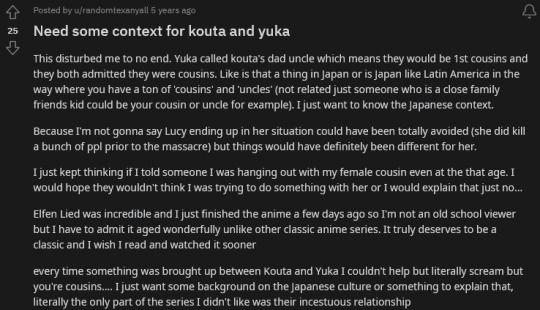
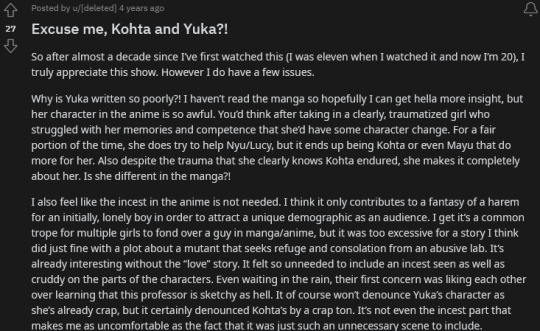
However, one thing that I do not see talked about a ton is Kouta's HIGHLY INAPPROPRIATE relationship with Lucy. While Lucy is not human and is considered to be a Diclonius (some sort of humanoid), some of the scenes and plot points feel as if the author wanted to bank off of questionable consent. Many scenes throughout the anime highlight that Lucy is "sexually curious," which makes perfect sense in theory, but is implemented horribly into the anime. Scenes like Kouta observing Lucy's private parts and random butt shots of Lucy just make the entire show uncomfortable, and I would even argue it normalizes taking advantage of the mentally immature for sexual purposes, which could be considered sexual abuse and/or rape (especially since Elfen Lied is a fan service ecchi).
I understand that mangakas and Japanese culture call for the normalization of nudity, but Elfen Lied fails horribly at making a good case. Elfen Lied could have looked over to other medias such as Ghost in the Shell and Imouto Sae Ireba Ii do a much better job at implementing casual and artistic nudity in their shows while still offering tidbits of fan service to the horny. But, I digress.


Nudity is showcased in both Imouto Sae Ireba Ii and Ghost in the Shell and don't face the same criticism as Elfen Lied
Regardless of how I feel about the previously mentioned, I will give the mangaka of Elfen Lied this: They did a great job making the viewers uncomfortable. I would even argue that Lynn Okamoto did a better job making me feel so unbelievably uncomfortable compared to The Coffin of Andy and Leyley, and it's been two years since I last saw Elfen Lied, so props to Okamoto!
My Personal Take on Taboos in Media


(Now that I scroll through images of The Coffin of Andy and Leyley and Elfen Lied, there really are a ton of similarities...)
In short, I do not think that these taboos make The Coffin of Andy and Leyley and Elfen Lied "bad." Distasteful? Sure. Gross? Most definitely. But, my concern for these medias stems from the fact that modern media has failed to hit home the ideas that these might be inappropriate taboos to normalize in modern internet culture. Simply going through tags such as "gravecest" and "coffincest" on Tumblr showcases the questionably deranged behaviors hardcore TCOAAL fans have towards the story's incest plot.
I was fairly surprised to find out the Elfen Lied has not been overly sexualized over the years. While I am thankful for that, I do believe that Okamoto was wrong for writing up a manga and anime that focused on a humanoid character solely for the purpose of being sexually taken advantage of. She could've done a much better job at handling the fan service without making Elfen Lied look like a promotion for sexual and mental abuse.
I believe all that really matters and what can be taken away from this analysis is that taboo subjects can be used in media as long as the intent and the targeted audience work together. For instance, I believe that The Coffin of Andy and Leyley's questionable use of incest as a story principle is okay since the author does not call for the promotion of incest in the story nor does the entire story revolve around the incestuous behaviors of the two main characters. BUT, rule 34 content of the game that showcases such explicit, incestuous acts between the siblings should be criticized since R34 content is solely made for pornographic purposes with no substance to the story's canon. I am also okay with Okamoto's usage of incest and questionable consent in Elfen Lied since it plays into the storyline and theme of the anime, but the fan service showcased in the show should be criticized since it was easily used as a lazy way to throw borderline pornography into the anime, therefore ruining the point of "artistic" and "normalized" nudity.
In short: I don't think using taboos in media should be illegal unless the media in question is a direct reflection of a real-life scenario (like the 2019 Shadman incident), but public criticism is certainly understandable on a case-by-case basis.
Thanks for reading, I am extremely tired.
grim.
31 notes
·
View notes
Text
The Coffin of Elfen and Leyley: Incest and Questionable Consent in 2000s Media.
WARNING: This blog post mentions numerous sensitive subjects such as incest, questionable consent, murder, cannibalism, sexually explicit material, and real-life criminal cases. If any of the following is bothersome, I would highly suggest scrolling past this post. Thank you.
ANOTHER WARNING: This post contains spoilers for Elfen Lied and The Coffin of Andy and Leyley. If you wish to avoid spoilers, I would highly suggest clicking off this post and come back once you have finished both. Thank you.
Hello (again), it's grim.
I wanted to discuss an interesting phenomenon that I've taken note of over the past couple of years that seems to always cause internet controversy: The rise of taboo subjects found in modern media.
Now, I want to clarify that I hold very libertarian beliefs when it comes to media. If you can think it, it can be written, regardless of how inappropriate the content is. However, I also believe that there should be consequences to such writings depending on the substance.
The two topics I'll be talking about today are The Coffin of Andy and Leyley and Elfen Lied. These are both pieces of media that I have consumed in the past 2 years, and have noticed a trend between taboo subjects and how their respective authors and/or fanbases have used their taboo nature to repurpose characters and relationships for inappropriate media.
While I believe these pieces of media can be criticized in any manner due to their taboo nature, I would argue in defense of their conception since there is no exact promotion of the taboo nature represented throughout the mentioned medias. I believe this is important to state, for I solely disagree with the creation of media that promotes a taboo and/or illegal act rather than just the representation of such acts.


Images of The Coffin of Andy and Leyley (left) and Elfen Lied (right)
To make this analysis and opinionated piece easier to read, I will be going through my opinions and personal experiences with both of these medias separately. To do this, I will be separating taboo into two subsections:
Illegal Taboo
Questionable Taboo
While I would argue that there is probably some grey area between the two of these, I am simply dividing the taboos into two separate categories because my stance on illegal and questionable taboo slightly changes. Furthermore, the taboos in TCOAAL and Elfen Lied are very different. I believe it would be unfair to compare incest and questionable consent content. Both are taboo, both have been countlessly debated for and against, but incest has stable, concrete laws set against it (at least in the United States) while the other doesn't.
Let's get into the analysis.
Illegal Taboo (The Coffin of Andy and Leyley)

Screenshot from the love/incest route of The Coffin of Andy and Leyley
Oh boy, where do I start. I wasn't entirely sure what I was getting myself into when I first stumbled upon this game. I saw the art style of the game in a YouTube video where the uploader had referred to the siblings as "lovers," which gave me the impression that the main characters of the game were not blood relatives. By the time I had seen the controversy plastered all over Twitter and Reddit about the TCOAAL's "questionable" content, I had already bought the game, which put me in a tough dilemma: Do I immediately refund the game or do I give it a chance?
I bet you can guess which one I picked.
Me being the curious individual that I am, I decided to keep the game. I had a million thoughts rush through my mind about the decision I had just made. What if the game actually has illegal content? People must be exaggerating the situation. I'm sure that the incest claims are probably just false. If it does have a plot that revolves around such content, maybe its just a small tidbit of the game. No biggie. These thoughts did not stop, and I wasn't sure what to do next.

One of the only screenshots from Episode 2 of TCOAAL that isn't horrendous
For a month or so, I avoided the game like the plague. I held off on installing it, I avoided it on Twitter, Reddit, and Instagram as best as I could (for both spoilers and online biases), and I refused to talk about the game with anyone that I knew. I planned to play the game, but I wanted all the controversy to die off first so I could play it without too much backlash. Unfortunately in this world, outrage has become the people's first emotion to anything, so even if your reasoning for such an action is rational and fair, you might still be attacked for simply touching new media without an initial bias.
When I finally got around to playing the game, I was genuinely pleased. Episode 1 has nothing over-the-top, and the incest that people were talking about was yet to be seen. So I didn't think anything of it. I scrolled through my social media and just continued assuming that people were hating on TCOAAL simply for being a new trend.
Then Episode 2 came around.
I'm going to keep this short and sweet: There is incestuous acts and behaviors littered throughout the game, and people online were certainly right.
Below, I have a handful of screenshots that I took showcasing the romantic and sexual tension and acts between the two siblings. There's a bit of it.










(I'm not kidding, all of these are in the game)
Now, I will give TCOAAL fans this, the vast majority (9 of the 10 images) of the incestuous content above is NOT easy to come across. There are very specific routes that you must past through in Episode 2 to come across these screenshots. So it's not as "obvious" as people online made it out to be. In fact, it took me roughly 3 hours of additional gameplay to reach all the different endings for Episode 2, so it certainly is time consuming.
For the sake of time and my sanity, I will NOT be showing how to reach these scenarios. I will only say that you will know if you stumble across the lover/incest route because the NARRATOR THEMSELF warns you NOT to continue down the route.
While I don't think that the incestuous undertones of the story should be the entire definition of the series, I can understand why people dislike it. What is so genius about giving Leyley a romantic and sexual interest in Andrew is that it does one simple thing that the creator wanted to hit home: It makes people uncomfortable. It simply does what every other piece of horror/thriller media tries to do, and it does it well. I don't see it as any more or less uncomfortable as the barbwire scene from Saw I, and the fact that the creator could pull that off just by making Leyley an incestuous, manipulative creep is stunning.
Furthermore, TCOAAL acts as an interesting question for psychology: Does social deprivation, abandonment, isolation, hopelessness, and manipulation play a role in one's moral compass? We see that Andrew's behavior towards Leyley dramatically changes throughout Episode 2 depending on whether you choose to trust and sympathize with Leyley. In addition to a change in behavior, we also see that (most notably the incest route) Andrew accepts his nickname "Andy" again, which he hates due to its connection with a murder that he committed with his sister in Episode 1 (not going into too much detail). It is also noted that Andrew's ex-girlfriend Julia had trouble with Leyley's dominating presence in Andrew's life, which would lead her to stop communicating with him. His degree of whether he cares or not changes based on his sympathy towards Leyley, highlighting how relationships in Andrew's life highly changes based on how much he lets Leyley abuse his existence.

Backstory that showcases Andrew's love interest that abandons him in Episode 1
In short, TCOAAL has many more layers than the internet made it out to be, but the incestuous routes and behaviors between Andrew and Leyley can be seen as concerning. I'll come back to this shortly.
Questionable Taboo (Elfen Lied)

Famous cover art for Elfen Lied showcasing Lucy in the nude.
Now, I watched Elfen Lied in 2022, so I'm just putting it out here that it has been a while since I have watched the anime. Furthermore, I have not read the manga, so my observations are SOLELY off the anime adaptation of Elfen Lied.
Just like TCOAAL, I do NOT think that the story of Elfen Lied is overly terrible. While I do think that TCOAAL has a more sound story line, I do think that Elfen Lied did an okay job at showcasing the selfishness and cruelty of humanity. However, there has always been a part of the show that doesn't sit right with me and many other viewers, and that is Kouta's (the main male protagonist) relationships with Yuka and Lucy.
Throughout the entirety of the show, Kouta partakes in relationships that are considered extremely taboo, especially in the western world. For one, he marries and supposedly procreates with his cousin Yuka at the end of the anime and manga, which is gross and highly disturbing to me, and I am certainly not the only one who feels that way. Almost any search through r/elfenlied would show the outrage and confusion that many people hold towards such a decision. Below are just a couple of what can be found about Kouta and Yuka's relationship (which is also ironically incestuous):


However, one thing that I do not see talked about a ton is Kouta's HIGHLY INAPPROPRIATE relationship with Lucy. While Lucy is not human and is considered to be a Diclonius (some sort of humanoid), some of the scenes and plot points feel as if the author wanted to bank off of questionable consent. Many scenes throughout the anime highlight that Lucy is "sexually curious," which makes perfect sense in theory, but is implemented horribly into the anime. Scenes like Kouta observing Lucy's private parts and random butt shots of Lucy just make the entire show uncomfortable, and I would even argue it normalizes taking advantage of the mentally immature for sexual purposes, which could be considered sexual abuse and/or rape (especially since Elfen Lied is a fan service ecchi).
I understand that mangakas and Japanese culture call for the normalization of nudity, but Elfen Lied fails horribly at making a good case. Elfen Lied could have looked over to other medias such as Ghost in the Shell and Imouto Sae Ireba Ii do a much better job at implementing casual and artistic nudity in their shows while still offering tidbits of fan service to the horny. But, I digress.


Nudity is showcased in both Imouto Sae Ireba Ii and Ghost in the Shell and don't face the same criticism as Elfen Lied
Regardless of how I feel about the previously mentioned, I will give the mangaka of Elfen Lied this: They did a great job making the viewers uncomfortable. I would even argue that Lynn Okamoto did a better job making me feel so unbelievably uncomfortable compared to The Coffin of Andy and Leyley, and it's been two years since I last saw Elfen Lied, so props to Okamoto!
My Personal Take on Taboos in Media


(Now that I scroll through images of The Coffin of Andy and Leyley and Elfen Lied, there really are a ton of similarities...)
In short, I do not think that these taboos make The Coffin of Andy and Leyley and Elfen Lied "bad." Distasteful? Sure. Gross? Most definitely. But, my concern for these medias stems from the fact that modern media has failed to hit home the ideas that these might be inappropriate taboos to normalize in modern internet culture. Simply going through tags such as "gravecest" and "coffincest" on Tumblr showcases the questionably deranged behaviors hardcore TCOAAL fans have towards the story's incest plot.
I was fairly surprised to find out the Elfen Lied has not been overly sexualized over the years. While I am thankful for that, I do believe that Okamoto was wrong for writing up a manga and anime that focused on a humanoid character solely for the purpose of being sexually taken advantage of. She could've done a much better job at handling the fan service without making Elfen Lied look like a promotion for sexual and mental abuse.
I believe all that really matters and what can be taken away from this analysis is that taboo subjects can be used in media as long as the intent and the targeted audience work together. For instance, I believe that The Coffin of Andy and Leyley's questionable use of incest as a story principle is okay since the author does not call for the promotion of incest in the story nor does the entire story revolve around the incestuous behaviors of the two main characters. BUT, rule 34 content of the game that showcases such explicit, incestuous acts between the siblings should be criticized since R34 content is solely made for pornographic purposes with no substance to the story's canon. I am also okay with Okamoto's usage of incest and questionable consent in Elfen Lied since it plays into the storyline and theme of the anime, but the fan service showcased in the show should be criticized since it was easily used as a lazy way to throw borderline pornography into the anime, therefore ruining the point of "artistic" and "normalized" nudity.
In short: I don't think using taboos in media should be illegal unless the media in question is a direct reflection of a real-life scenario (like the 2019 Shadman incident), but public criticism is certainly understandable on a case-by-case basis.
Thanks for reading, I am extremely tired.
grim.
#tcoaal#andrew graves#elfen lied#the coffin of andy and leyley#leyley graves#lucy#fanbase#fandumb#opinion#discussion#media criticism#media#media commentary#media analysis#internet#the internet#controversy#controversial#coffincest#gravecest#siblings#rant#2000s#modern media#media critique#analysis#criticism#morality#ethics#society
31 notes
·
View notes
Text
Short and Sweet Intro
Welcome to my blog. If you have never met me, hello. If you have, hello again.
Gonna keep this simple and to-the-point. This is an account dedicated to ranting and venting about life, talking about my opinions, and keeping it simple.
I plan to post on here at least once a week regarding whatever topic of my choice, so stick around if you want. Or don't, doesn't matter too much to me. Again, most of this stuff will be casual, so don't expect full on analysis essays on how I feel about certain topics. I tried to do complete essays on my own music/album takes, but I found it way too stressful.
See you around. or not.
~Grim
#chill#new user#new account#new post#first post#new to tumblr#new to the community#simple#sweet#music#music rant#rant post#rant#personal rant#personal post#personal vent#personal#might delete later#myself#update#post#announcement#blog update#opinion#criticism#casual
2 notes
·
View notes
